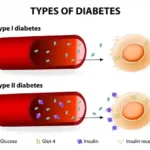Polycystic ovary syndrome is a medical condition that disturbs the balance of a woman’s hormone levels. Women with PCOS produce unusually high levels of male hormones known as androgens which lead to an imbalance of their reproductive hormones.
PCOS can cause irregular menstrual cycles, missed periods, unpredictable ovulation, and excessive hair growth. It is a common condition among women and girls of reproductive age. It can also increase your risk of developing other health conditions.
Signs and Symptoms of Polycystic Ovary Syndrome (PCOS):
Symptoms of PCOS usually vary from person to person and can range from mild to severe. Many women don’t even know they have PCOS until they have trouble getting pregnant or discover infertility.
Here are some of the most common symptoms of polycystic ovarian syndrome:

- Irregular periods or heavy bleeding during periods
- Abnormal hair growth
- Oily skin or acne
- Difficulty getting pregnant
- Excessive hair growth, including the chest, stomach, and back
- Ovaries with many cysts
- Infertility
- Thinning hair
- Abnormal weight gain

What Causes PCOS?
The exact cause of PCOS has not yet been discovered, but it is believed that certain factors play a great role in their development.
- Insulin resistance
Insulin is a hormone that is produced by the pancreas to regulate the amount of sugar in the body. The increase in insulin levels can cause the ovaries to release male hormones that affect the development of the follicles. The increased male hormone prevents normal ovulation and contributes to the development of PCOS.
- Hormonal imbalance
An imbalance in the levels of certain hormones is found in females with PCOS, such as raised levels of male hormones that prevent the ovaries from releasing eggs and lead to irregular menstrual cycles.
- Genetic factor

If you have a family history of PCOS, such as your mother, sister, or any other family member, then it can increase your risk of developing it.
- Inflammation
Being overweight also increases one’s chance of developing PCOS. Women with PCOS often have some level of inflammation in their bodies.
Management of Polycystic Ovarian Syndrome (PCOS)
There are some treatment options related to PCOS that depend on whether you want to become pregnant in the future or not.
- Medication

Certain medications are available to control the symptoms of PCOS. These medicine options help in blocking androgen levels and regulate the insulin levels in the body.
- Herbal Remedies

Different herbal remedies help manage symptoms of PCOS such as cinnamon, turmeric, and neem. These herbs help with ovulation by decreasing insulin resistance and regulating oestrogen levels in the body.
- Dietary and Lifestyle changes

To minimise the symptoms of PCOS, it’s important to make dietary and lifestyle changes. Try to drink water throughout the day to maintain hydration levels in the body, which is extremely important for women with PCOS.
Practise yoga and moderate exercise that can ease your mind and body and help manage stress and anxiety.
By following some dietary recommendations, you can lower the risk and symptoms of PCOS. Avoid sugary and processed foods, limit salt intake during menstruation, and increase the consumption of fruits and vegetables in your diet.
CONCLUSION
Polycystic ovarian syndrome is a common hormonal disorder that affects many women worldwide. Symptoms of PCOS include excessive hair growth, acne, weight gain, and fertility problems.
When it comes to treatments, PCOS can be managed by making certain dietary changes, managing weight and having an active lifestyle.
Suffering from PCOS? Visit Ayursparsh Clinic & Panchakarma Centre, a well-known wellness clinic in Dharwad, Karnataka, for the right diagnosis and treatment.
Consult Dr. Rashmi Patil to get a customised treatment plan for your condition.




